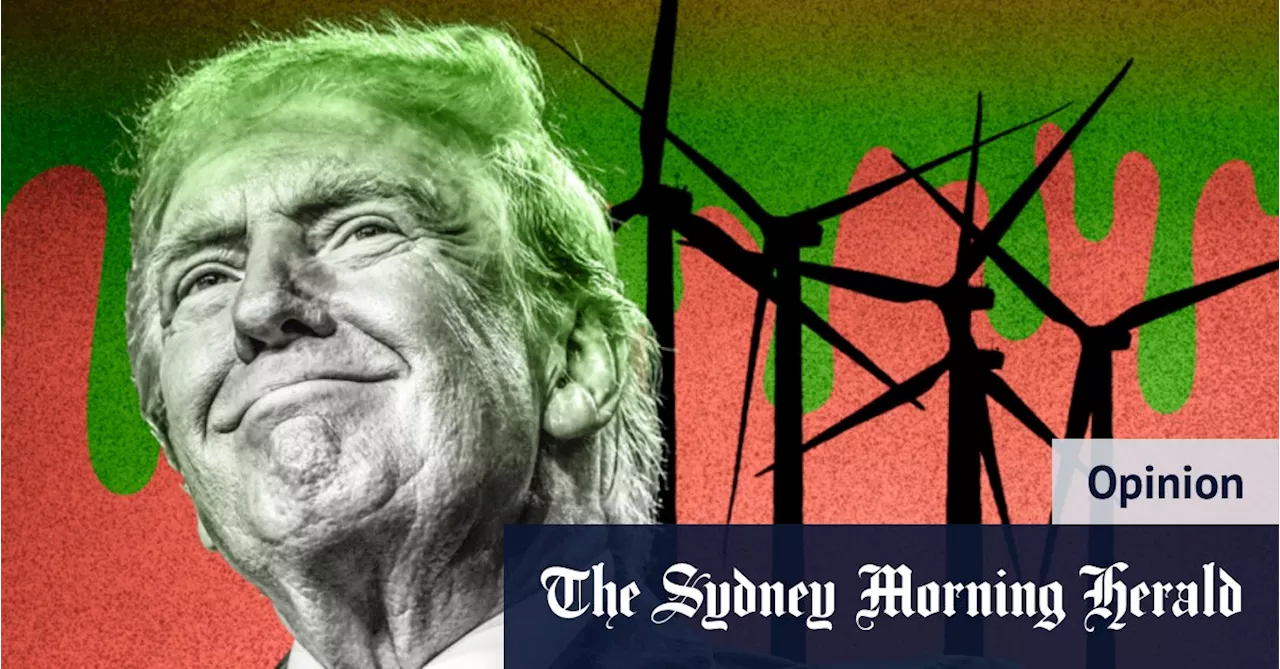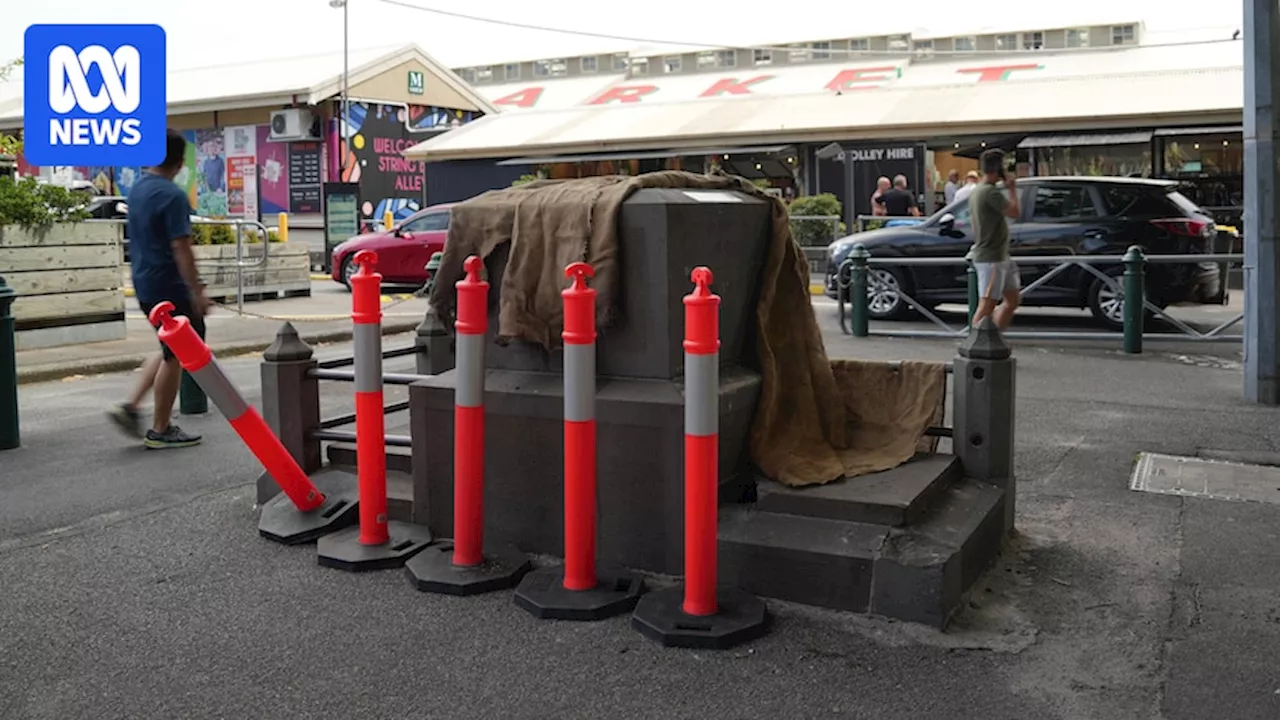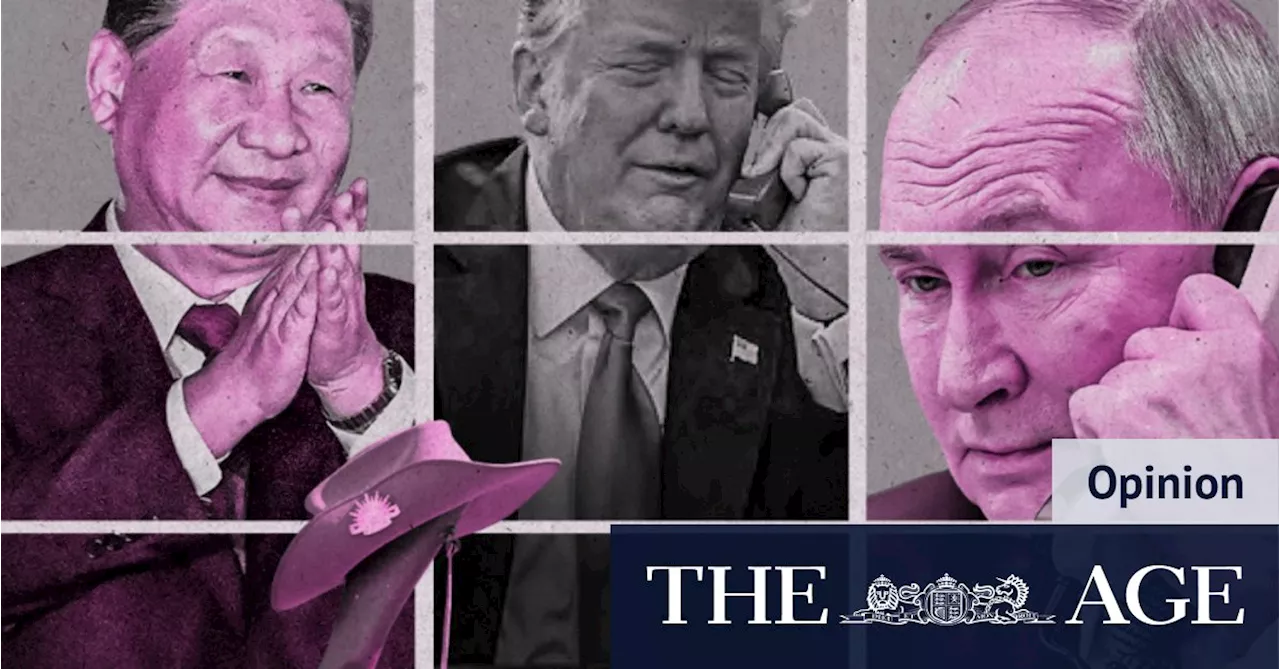This article analyzes Donald Trump's recent actions and their implications for the global security order, focusing on the impact on Australia. It argues that Trump's approach to foreign policy, characterized by isolationism and appeasement, creates an environment of instability and uncertainty.
This week has been both captivating and unsettling for those observing the war in Ukraine . Donald Trump 's recent social media post seemingly paved the way for, at a minimum, accepting a Russia n sphere of influence in Eastern Europe. His phone conversation with Vladimir Putin conceded all of the Russia n president's key demands before negotiations even begin in Saudi Arabia.
This suggests that Trump might repeat his disastrous Afghanistan agreement by excluding Ukraine and Europe from crucial negotiations. Shortly after, Trump's defense secretary, Pete Hegseth, issued stark pronouncements about the United States no longer guaranteeing European security. He stated that while Europe might be excluded from negotiations, it would be responsible for deploying troops as peacekeepers to Ukraine. Vice President J.D. Vance, while asserting on Friday that the greatest threat originated from within rather than from Russia or China, left open the possibility of further aid to Ukraine, including the deployment of US troops, if Russia fails to make concessions. Trump even floated the idea of reaching a deal with China and Russia, under which all three countries would reduce their defense budgets.There have been numerous interpretations of the new US administration's behavior in Europe and America. Perhaps the most apt description comes from Vladimir Lenin, who supposedly said: “There are decades where nothing happens; then there are weeks where decades happen.” As a peace through weakness strategy, Trump's withdrawal from the world stage will only embolden dictators like Putin and Xi, who believe the time is ripe to reshape the international system. By accepting the possibility of Ukraine eventually returning to Russia, Trump implicitly endorses China's claims on Taiwan. The political shock-and-awe campaign launched by Trump on his inauguration day has extended to European security and will almost certainly spread to the Indo-Pacific as well. The underlying sentiments shaping the new American view of its role in the world will have profound implications for Australia's future security. The security environment in the Pacific region, characterized in the government's National Defence Strategy as the most complex and challenging since World War II, is even more precarious due to last week's events. Accepting Ukraine's potential return to Russia equates to tacitly accepting China's claims on Taiwan. By sending mixed messages on Ukraine negotiations, Trump is creating an environment ripe for misunderstandings and catastrophic strategic miscalculations by China and other regional players. The dwindling trust among US allies in America provides Putin and Xi with more opportunities to exploit the fissures between America and its friends. For Australia, the last major shift in our security outlook occurred after the fall of Singapore, marking the end of the imperial defense strategy. We might be on the verge of another once-in-a-century security realignment. Our longstanding American ally, under Trump, threatens to reward the shared sacrifice of our soldiers throughout the 20th and 21st centuries with punitive tariffs on Australian exports. America might be too preoccupied elsewhere or focused on competing strategic interests to assist Australia in a future conflict.So, what does this mean for Australia? Firstly, it underscores the need to remain closely aligned with America while recognizing that every facet of our relationship is subject to renegotiation. The best course of action is to stand firm and resist being pressured. If tariffs on our modest exports to America persist, Australia could retaliate by imposing similar tariffs on US goods. Alternatively, we could demand a 25% discount on our multibillion-dollar commitment to AUKUS. Secondly, the Australian government must evaluate the implications of Trump's pursuit of a grand bargain with Xi, mirroring his approach with Putin. While America might engage in a trade war with China, Trump seems unwilling to risk an actual war with China to defend nations in the western Pacific. Trump's statement that “Ukraine may be Russian again someday” will be interpreted in Beijing as America's openness to a compromise on Taiwan. Chinese occupation of Taiwan and acceptance of its illegal island construction in the South China Sea would set a precedent for further aggression. This could result in a more assertive China seeking to advance other territorial claims, further destabilizing our region. Finally, whoever wins the Australian election must urgently develop a strategic Plan B for Australia, using the recent National Defence Strategy as a foundation. We possess the advantages of being the world's 13th largest economy, with favorable geography, advanced technology, and education sectors. However, our Australian Defence Force is shrinking due to the increasing submarine budget. By 2030, we may not have nuclear submarines and could lack a robust and lethal ADF
Donald Trump Ukraine Russia China Taiwan Australia Security Indo-Pacific International Relations Geopolitics AUKUS
United Kingdom Latest News, United Kingdom Headlines
Similar News:You can also read news stories similar to this one that we have collected from other news sources.
 Australia can be a winner from Trump’s climate retreatIf we’re smart, positioning ourselves to benefit from the climate and clean energy transition does not require us to pick a fight with Trump.
Australia can be a winner from Trump’s climate retreatIf we’re smart, positioning ourselves to benefit from the climate and clean energy transition does not require us to pick a fight with Trump.
Read more »
 Australia can be a winner from Trump’s climate retreatIf we’re smart, positioning ourselves to benefit from the climate and clean energy transition does not require us to pick a fight with Trump.
Australia can be a winner from Trump’s climate retreatIf we’re smart, positioning ourselves to benefit from the climate and clean energy transition does not require us to pick a fight with Trump.
Read more »
 China’s electric vehicles flooding Australia raises security concerns, expert warnsSenior motoring journalist Paul Gover has raised concerns about the security risks associated with the influx of Chinese electric vehicles into Australia.
China’s electric vehicles flooding Australia raises security concerns, expert warnsSenior motoring journalist Paul Gover has raised concerns about the security risks associated with the influx of Chinese electric vehicles into Australia.
Read more »
 Shadow Minister Warns of 'Grave Security Crisis' over Alleged State-Sponsored Antisemitic Attacks in AustraliaShadow home affairs minister James Paterson has warned that allegations of state-sponsored antisemitic attacks in Australia could constitute one of the most grave security crises in the country's history. He called for Prime Minister Anthony Albanese to provide more information about the allegations, which have sparked fear within the Jewish community.
Shadow Minister Warns of 'Grave Security Crisis' over Alleged State-Sponsored Antisemitic Attacks in AustraliaShadow home affairs minister James Paterson has warned that allegations of state-sponsored antisemitic attacks in Australia could constitute one of the most grave security crises in the country's history. He called for Prime Minister Anthony Albanese to provide more information about the allegations, which have sparked fear within the Jewish community.
Read more »
 Australia Day Vandalism Prompts Condemnation and Increased SecurityThree memorials in Melbourne were targeted in acts of vandalism overnight, prompting condemnation from officials and a promise of increased security ahead of Australia Day. The incidents occurred at the Queen Victoria Market, the Anzac memorial in Parkville, and an outdoor stage in Ringwood North.
Australia Day Vandalism Prompts Condemnation and Increased SecurityThree memorials in Melbourne were targeted in acts of vandalism overnight, prompting condemnation from officials and a promise of increased security ahead of Australia Day. The incidents occurred at the Queen Victoria Market, the Anzac memorial in Parkville, and an outdoor stage in Ringwood North.
Read more »
 DeepSeek App Raises Security Concerns, Australia Calls for Ban on Government DevicesAustralia's largest cybersecurity provider, CyberCX, has issued a threat advisory stating that the popular AI app DeepSeek is likely under the control of the Chinese government and poses significant risks to user privacy. The advisory recommends restricting access to the app on government and enterprise devices due to concerns about biased outputs aligning with Chinese Communist Party objectives and the collection of user data. DeepSeek, which has surpassed ChatGPT in global downloads, has also drawn attention from other governments, including the US and UK, raising concerns about its data security practices and potential for censorship.
DeepSeek App Raises Security Concerns, Australia Calls for Ban on Government DevicesAustralia's largest cybersecurity provider, CyberCX, has issued a threat advisory stating that the popular AI app DeepSeek is likely under the control of the Chinese government and poses significant risks to user privacy. The advisory recommends restricting access to the app on government and enterprise devices due to concerns about biased outputs aligning with Chinese Communist Party objectives and the collection of user data. DeepSeek, which has surpassed ChatGPT in global downloads, has also drawn attention from other governments, including the US and UK, raising concerns about its data security practices and potential for censorship.
Read more »
